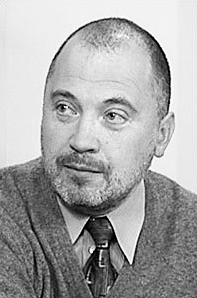 Nikolai Petrov
Nikolai PetrovThe Kremlin is clearly worried, and not just about the mayoral race in Moscow. The anxiety can be seen in the fact that President Vladimir Putin skipped his vacation in order to spend two weeks meeting with a dozen senior politicians from regions where elections will be held.
It is too early to give an overall assessment of these elections, but a few important conclusions can already be drawn.
First, the authorities are no longer presenting United Russia as the party of power and have essentially rejected the idea of a one-party system. In the Zabaikalsky region, the acting governor belongs to Just Russia, and in Smolensk, where the legislative assembly will be elected, the governor is a member of the Liberal Democratic Party. However, United Russia candidates head the voting lists in three-fourths of the localities where legislative assemblies will be elected. There are four exceptions. In addition to the Zabaikalsky and Smolensk regions, Vladimir has an unpopular governor and the previous governor is a strong candidate heading the list for the Communist Party. Representatives of unpopular authorities in Yaroslavl have also been bumped in favor of Valentina Tereshkova, the first woman in space.
The Kremlin has been looking on in silence as an almost overt political competition shapes up between members of the old and new ruling elites in the Zabaikalsky, Vladimir and Arkhangelsk regions. A less obvious struggle is also taking place in the republics of Kalmykia and Bashkortostan.
The situation differs greatly from one region to the next, but two opposing methods for conducting elections are emerging. For example, in Moscow the authorities are taking the "soft" approach, while in Yaroslavl, they are playing hardball. After initially paying lip service to the idea that elections must be more competitive for the result to be legitimate, the authorities have now become less interested in the electorate and more focused on the battle between the elites and keeping voter turnout low.
Leaders are testing out the new approach to elections in Moscow. This is where the protest movement has been strongest and the Kremlin is afraid of waking up that sleeping giant. The most competitive races are those unfolding in the Zabaikalsky and Vladimir regional assemblies and the municipal elections in Yekaterinburg, Krasnoyarsk and Tolyatti.
Elsewhere, the elections are either traditional in form or even worse than before. Strong candidates out of favor with the Kremlin are either denied registration or are pulled from the race, law enforcement agencies put up barriers to participation and so on. The authorities continue to make wide use of their old and "less offensive" tricks, such as giving first place to United Russia on most ballots deemed "toss-ups." That maneuver plays an important role in legislative assembly elections in which an average of 17 or 18 party lists are registered in a single region.
Right after the elections, United Russia will conduct its convention on October 5, and some observers anticipate that the authorities will make a final decision on whether to retain United Russia as the party of power. That is a possibility, although the Kremlin seems to be satisfied with the current state of affairs in which no single party is clearly identified as the ruling party. State corporations employ the practice of sharing expenses and profits. In this case, parties share political assets and liabilities. That is essentially the role played by the tandem of United Russia and the All-Russia People's Front. State Duma elections could be held early if the authorities fare well in the September 8 elections, but that is unlikely given the poor economic picture at present. Therefore, leaders will probably not take any decisive action against United Russia, allowing it to die a natural death.
Nikolai Petrov is a professor of political science at the Higher School of Economics.
A Message from The Moscow Times:
Dear readers,
We are facing unprecedented challenges. Russia's Prosecutor General's Office has designated The Moscow Times as an "undesirable" organization, criminalizing our work and putting our staff at risk of prosecution. This follows our earlier unjust labeling as a "foreign agent."
These actions are direct attempts to silence independent journalism in Russia. The authorities claim our work "discredits the decisions of the Russian leadership." We see things differently: we strive to provide accurate, unbiased reporting on Russia.
We, the journalists of The Moscow Times, refuse to be silenced. But to continue our work, we need your help.
Your support, no matter how small, makes a world of difference. If you can, please support us monthly starting from just $2. It's quick to set up, and every contribution makes a significant impact.
By supporting The Moscow Times, you're defending open, independent journalism in the face of repression. Thank you for standing with us.
Remind me later.






